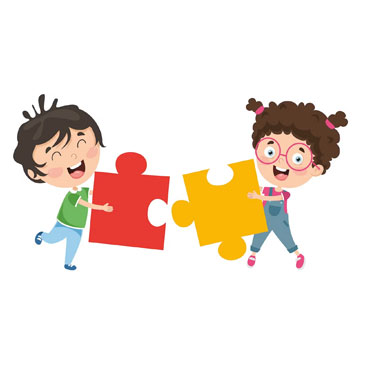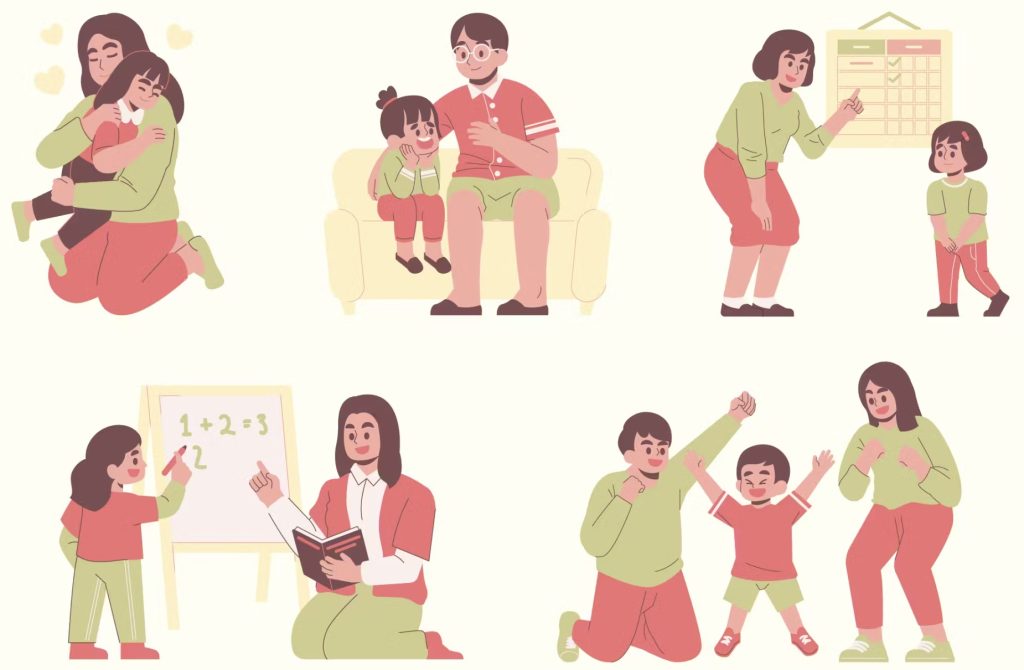Lessons From The First Person
The first person was Adom (Adam). Originally, Adom (Adam) was created as a single individual with male and female characteristics. When Hashem (G-d) looked at Adom (Adam), He was not satisfied with what He saw. Unlike all living animals, each having one gender and needing a mate of the opposite gender to be complete, Adom (Adam) needed no other person since he was complete all by himself. Hashem (G-d|) realized this was not good and would ultimately lead to Adom’s (Adam’s) emotional and spiritual destruction.
Hashem (G-d) realized that Adom (Adam), having both male and female characteristics and requiring no other person, would become so self-absorbed and self-serving that this narcissism would make him spiritually and emotionally ill. He would become arrogant, conceited, and haughty, the antitheses of spiritual and emotional health. Adom (Adam), because of his completeness and perfection, could easily come to consider himself as if he was like Hashem (G-d)- needing nothing to complete himself, unlike other creatures needing a mate. These visions of grandeur and arrogance would eventually lead Adom (Adam) down the road to idolatry and self-worship. He would ultimately come to see the world as having two deities, himself and the true Hashem (G-d), the creator of the world. Thus, if Adom (Adam) remained alone, without a partner, he would come to destroy himself emotionally and spiritually.

Hashem (G-d) had a way of correcting Adom’s (Adam’s) intrinsic flaw. He separated from Adom (Adam) his female characteristics. This female part became Chava (Eve), the first woman. Adom (Adam) and Chava (Eve) were now the first couple. When Adom (Adam) first saw Chava (Eve) and realized what he was missing, he felt incomplete for the first time. He was immediately drawn towards her in an effort to become “whole” again. He wanted to be a partner with her and thereby regain his wholeness. Chava (Eve), too, feeling her incompleteness, wanted to join with Adom (Adam) and also become whole. Thus, the first marriage was born- two people becoming one.
Now, if Adom (Adam) was to succeed in being a partner with Chava (Eve), he had to concern himself with her and not exclusively himself. He had to convince her to be a partner with him. They had to be kind, respectful, and sensitive to each other to succeed as a couple. If there were relationship conflicts, they would push each other away, and they could not and would not join as partners. Rather, they would both remain lonely, apart and incomplete.
As contemporary people, we live with the same challenges experienced by Adom (Adam) and Chava (Eve), the first two human beings and the first married couple. It is a foremost duty for Jews to marry and bear children. It is imperative that sholom bayis (peace in the home) reign in the home. Otherwise, the ability to complete ourselves and raise spiritually and emotionally healthy Jewish children becomes very difficult too impossible. Hashem (G-d) demonstrates to us the importance of sholom bayis (Peace in the house) by rewarding us with his presence (shichina) only when there is sholom bayis (peace in the home) in the home.
There are many techniques and strategies for creating sholom bayis (peace in the home). However, the story about Adom (Adam) and Chava (Eve) suggests a primary attitude that is fundamental. As long as Adom (Adam) was complete and needed no one, he was prone to arrogance and haughtiness. When he was divided and made incomplete, he was humbled. Humility is a fundamental requirement for peace and harmony in the home. Egotism, the opposite of humility, not only separates us from Hashem (God) but also leads to arguing, revenge, grudges, efforts to control others, etc. Humility leads to sensitivity, caring, self-sacrifice, and successful relationships, etc. Humility is the key to success as a human being- both in our relationship with Hashem (G-d) and with people.
How much or how little humility a person has is, in part, a genetic predisposition and, in part, the result of how we were raised as children. Regardless, we can teach ourselves how to be more humble. We can foster a humble outlook on life by learning Chassidus (practical Jewish mysticism), Mussar (character development), or any other Torah (Jewish bible and commentaries) text that teaches about the greatness of Hashem (G-d) and our responsibility and accountability as Jews. We can also implement a behavioral plan to behave humbly and carefully monitor its implementation. Humility is the foundation upon which sholom bayis (peace in the home) rest—it is well worth the effort to acquire this essential spiritual character trait.
You decide: TO CULTIVATE HUMILITY AND SHALOM BAYIS (PEACE IN THE HOME)
The benefits
• Develop emotional and spiritual health through humility
• Strengthen marriage and family bonds by prioritizing peace and mutual respect
• Promote kindness, sensitivity, and selflessness in relationships
• Invite the divine presence (shechinah) into the home through harmony
• Foster humility that connects you more deeply with Hashem (G-d) and with others
• Ensure the emotional and spiritual well-being of future generations
Risks when you do not cultivate humility and shalom bayis
• Fall into arrogance, self-centeredness, and emotional emptiness
• Damage relationships through arguments, resentment, and control
• Drive away peace and harmony, leading to loneliness and division
• Lose the spiritual connection and divine presence in the home
• Weaken the foundation for raising healthy, spiritually grounded children
• Risk emotional and spiritual decline through egotism and pride
What Client's & Professionals Are Saying
Please consult our glossary for help understanding any of the words used in this article. GLOSSARY





